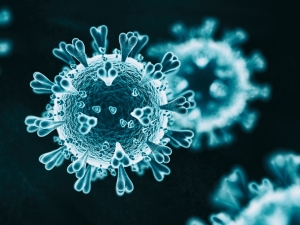COVID-19 Mortality: Does the Renin-Angiotensin System Play a Role?

Mortality risk from coronavirus disease 2019 (COVID-19) seems to be associated with cardiovascular disease, diabetes and hypertension. And we know that these disorders share an underlying pathophysiology related to the renin-angiotensin system (RAS)—a hormone system that regulates blood pressure and fluid balance. That relationship may provide important clinical insights about how we treat COVID-19, but first we need to clearly understand the causal mechanism that lies at the heart of it—and there, we see conflicting information.
In a viewpoint article, a team of authors proposed key clinical research priorities to clarify the role of RAS inhibition in COVID-19 mortality—priorities that the international research community could rapidly address in a randomized control study. “Some investigators have hypothesized that the use of RAS blockade could lead to improved outcomes from COVID-19. Others have suggested that avoidance or withdrawal of an RAS blockade could help,” said lead author Thomas Hanff, MD, MPH, a cardiovascular disease fellow at Penn and a student in the CCEB’s Master of Science in Clinical Epidemiology program. “Clinicians worldwide need to know if either of these ideas has merit.”
Indeed, there is evidence to support various interpretations. Severe acute respiratory syndrome coronavirus 2 (SARS-CoV-2) uses the angiotensin-converting enzyme 2 (ACE2) to initiate the infection. In cardiovascular disease patients and in instances when we use drugs to inhibit RAS—such as ACE inhibitors or angiotensin receptor blockers (ARBs) to treat hypertension or heart failure—we see increased ACE2 levels, which may increase the virulence of SARS-CoV-2 within the lung and heart. But evidence from related coronaviruses suggests that SARSCoV-2 infection may reduce or suppress ACE2; this leads to a toxic over-accumulation of Angiotensin II, a peptide hormone that may increase the risk of acute respiratory distress syndrome at high levels. RAS inhibition could mitigate this dangerous effect.
As a first step, we could analyze patients who are already using RAS blockade and are admitted to hospitals with a positive SARS-CoV-2 test, comparing the risk of severe disease versus mild disease that is associated with these medications, wrote the viewpoint authors. And a Penn Medicine team led by Julio A. Chirinos, MD, PhD, and Jordana B. Cohen, MD, MSCE, has also initiated a clinical trial to evaluate whether ACE inhibitors or ARBs help mitigate complications or lead to more severe symptoms and worse outcomes among these patients. Their multi-center, international trial, REPLACE COVID, is enrolling patients by invitation now.
Regarding the observational studies, several biases and confounders will need to be considered in order to glean insights about RAS and COVID-19 more generally, the authors note. Most important, patients who are admitted to the hospital for COVID-19 are usually sicker than patients who are able to recover at home, which creates selection bias. Analysts will also need to rule out any confounding as a result of age or of the underlying conditions that required RAS blockade in the first place.
These analyses would provide a necessary first step to clarify the role of a pharmacologic RAS blockade in COVID-19—and the role of RAS in COVID-19 more broadly. “We note that patients who require RAS inhibitors should not change their regimens without further evidence,” comments Dr. Hanff. “At the same time, if there is even a modest association (positive or negative) between RAS blockade and COVID-19 outcomes, this data could rapidly inform confirmatory trials that could save countless lives in the escalating pandemic.”